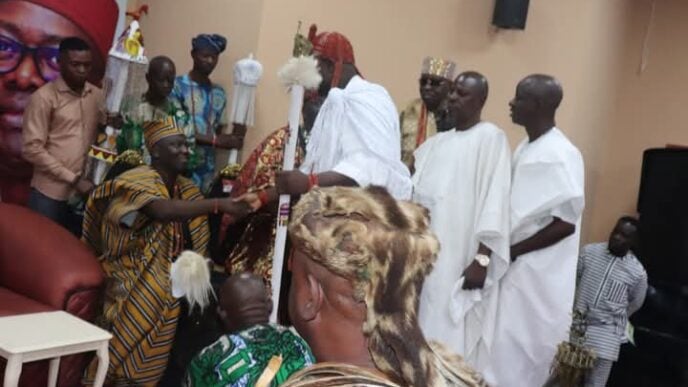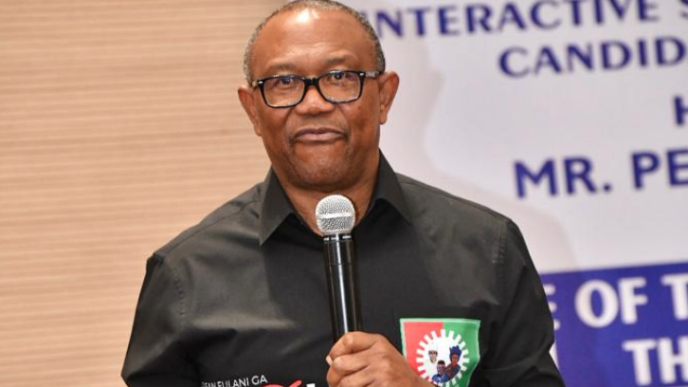“Just Because You Had a Good Mother Doesn’t Mean Your Father Had a Good Wife.”
They say every story has two sides. But in many homes, especially African homes, perhaps even globally only one is ever truly heard.
The nurturing, sacrificial, ever-loving mother becomes the bedrock of childhood nostalgia. She is immortalised in memory, sanctified in speech. Songs are sung in her honour. Tears fall at the mere mention of her name. She is the heartbeat of the home, the soul of the story.
We find comfort in that narrative, and so we cling to it. We canonize mothers, casting them as selfless saints, keepers of warmth, endurance, and grace. We remember the bedtime stories, the quiet strength, the relentless sacrifices. We turn their names into scripture. We speak of them with reverence and longing. They are our treasured relics, we build monuments in our memories, we speak her name like scripture. Stories are told. We carry her memory like a sacred relic.
Advertisement
But here’s a truth wrapped in thorns.
The truth not often told. But it is time to unpack it.
It is a hard thing to say out loud. Even harder to hear.
The bitter sip of truth no one wants to taste, not even you.
Just because you had a good mother doesn’t mean your father had a good wife.
It’s not an easy thing to say. It’s even harder to hear. Yet it is a truth that demands its own space.
Advertisement
Sometimes, the woman who raised you with love wasn’t the woman your father could live with in peace.
Good motherhood doesn’t always equal good partnership and that’s a truth we rarely tell.
You adored her. He endured her. Both stories deserve to be told. Your mother’s halo might’ve cast a shadow over your father’s truth.
She tucked you in with tenderness but turned away from him in silence. Not all storms come with quiet bitterness in a marriage no one dares to name.
Advertisement
Somewhere, a man sits quietly at his wife’s funeral. His children, with trembling voices and misty eyes, speak of a woman who was their world. A woman who gave them love, a woman who held the family structure together, who taught them everything good and true, who taught them faith. He listens, respectfully, quietly. But he does not speak.
Because if he did, he would ruin the mythology.
What would he even say?
Would he talk about the cold silences? The sharp words? The years spent trying, bending, yielding only to be met with walls and wounds? Would he say how he shrank himself to keep the peace? How he prayed for warmth and received only frost?
Advertisement
He won’t say a word.
Because in our culture, especially in our homes, men are rarely granted the dignity of pain.
Advertisement
The woman who tucked in her children with warmth but gave her husband the cold shoulder.
The woman who fed, clothed, and prayed for her children but poisoned the air in her marriage with bitterness, contempt, manipulation and neglect.
Advertisement
The husband’s side of the story often dies in silence. He becomes the one who didn’t try hard enough. The one who left too soon. The one who couldn’t love enough. The sins of the marriage are laid at his feet without trial. The verdict is swift: the mother was holy; the father, guilty.
Case closed.
Advertisement
But life isn’t a courtroom. And truth isn’t always that clean.
Yes, many men have failed. Many have hurt the women they married. But let us not pretend the ledger is always that simple. Because there are men who stayed. Men who tried. Men who bent until they broke.
Men who softened their voices while their wives sharpened theirs.
Men who paid school fees and the price of peace.
Men who gave their all only to be told it wasn’t enough.
And when they finally left, the world called them cowards. The children called them absent. No one asked what they endured.
Because society has trained us to view motherhood through a single lens, giving, forgiving, enduring. And while many mothers embody these virtues beautifully, we must also make space for the truth we rarely touch, the woman who was a wonderful mother, but a terrible partner.
The woman who prayed with her children, but poisoned her marriage.
Who packed lunches with love, but packed her husband’s heart with sorrow.
Who was a healer to her children and a hurricane to her spouse.
This is not a demonization of women. It is a humanization of us.
Because womanhood is complex.
A woman can be two things at once.
She can be gentle with her children and hard with her husband.
She can show up at every PTA meeting and never show up emotionally in her marriage.
She can raise beautiful souls and simultaneously unravel a relationship.
These are not contradictions. They are coexisting truths.
Motherhood is sacred, yes. But it is not immunity. A woman can succeed as a mother and fail as a wife. And the two are not the same.
We must learn to hold both realities in the same hand.
We must learn to speak of the fathers who endured not for applause, but for acknowledgment.
The men who showed up until they couldn’t anymore.
The men who stayed quiet when their names were dragged.
The men who chose peace over presence because love is no longer enough when respect has left the room.
That is not abandonment. That is survival.
Too often, children grow up worshipping one parent and resenting the other, never knowing the full story. They inherit a legacy shaped by silence and softened by affection. But parenting and partnership are not interchangeable. And marital failure cannot always be blamed on the one who walked away.
Your mother may have been your angel.
But she may have been your father’s burden.
That doesn’t erase her goodness. It adds dimension to her humanity. And if we are honest, truly honest, we must be willing to tell the whole story.
Not to shame.
But to heal.
Because healing does not come from half-truths. It comes from holding the light up to every corner, even the ones that complicate our heroes.
So before you condemn him, ask yourself.
The woman who raised you with warmth and strength was she ever that tender to the man she vowed to love?
The answers may not be easy.
But they are necessary.
Because sometimes, the man you resent today once tried again and again to love the woman you revere. And sometimes, the woman who raised you beautifully wasn’t easy to live with.
So yes, you had a good mother.
But was your father ever allowed to have a good wife?
Let us stop weaponizing pain and start humanizing people. Let us raise children who do not have to heal from their parents. And maybe just maybe if we listen without labels and love without ego, we might raise a generation that finally breaks this bitter, burning cycle. Fathers are not optional. They are not footnotes. They are not failures by default. It’s time the world stopped writing them off before hearing their side.
Why do you think we have more widows than widowers? Because men don’t unpack their hearts, they stuck it inside and be the bigger person while dying gently of depression, they never complain, that’s not healthy.
The mic is yours now, men. Speak not in rage, but in truth. The world is finally listening.
To honour the truth in our stories, we must acknowledge every voice. Let’s make room for the unseen parent whose quiet pain has been overlooked in the fairy-tale version of motherhood. Every parent is both saint and sinner, strength and vulnerability sharing the same heart. If we accept that complexity, healing can truly begin. Romanticizing one side keeps us from seeing love’s full picture. We owe it to each other and our families to see beyond myths and meet each person with compassion.
Shaakaa writes from University of Agriculture, Makurdi , Benue State and can be reached via [email protected]
Views expressed by contributors are strictly personal and not of TheCable.












